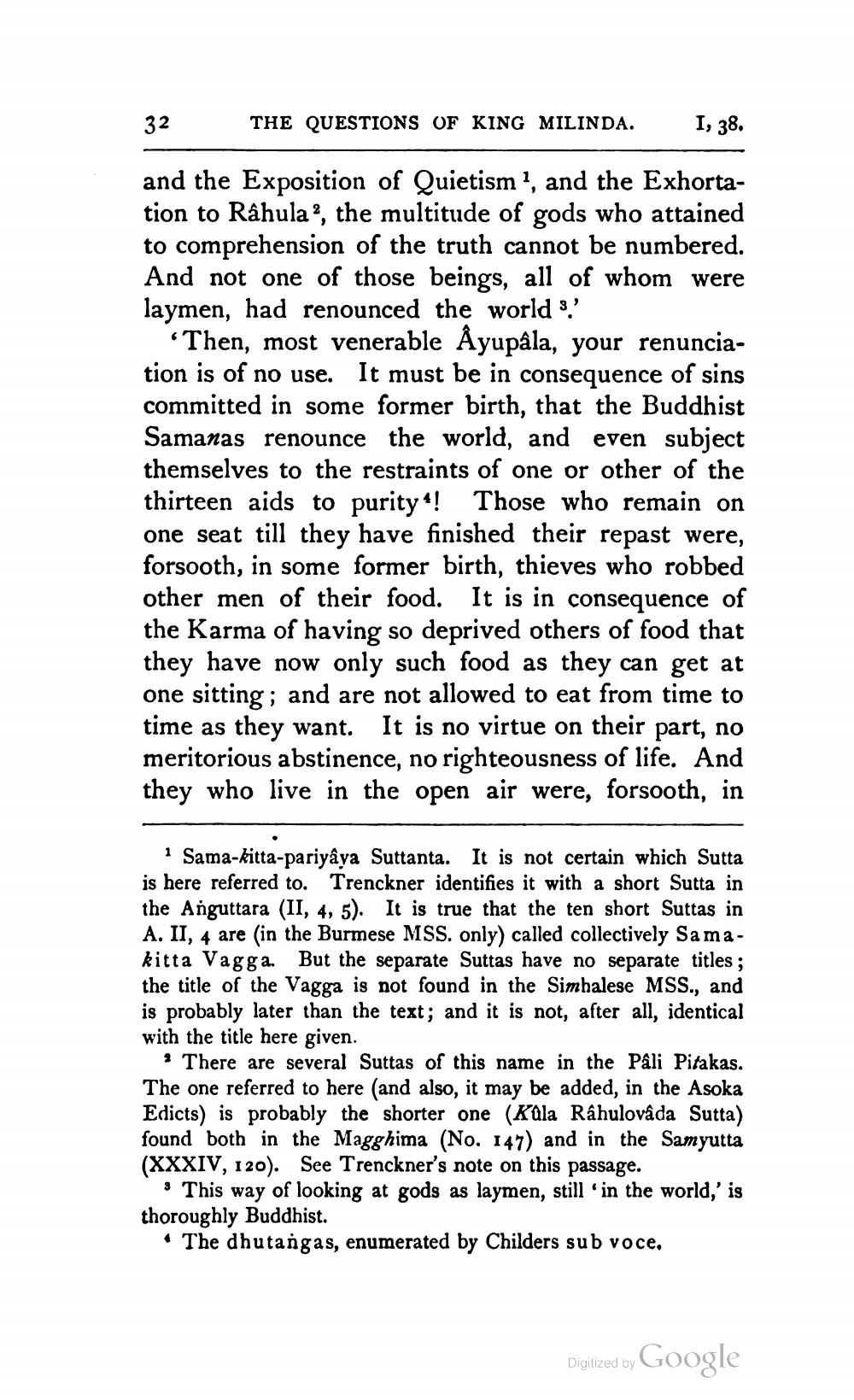________________
32
THE QUESTIONS OF KING MILINDA.
1, 38.
and the Exposition of Quietism ?, and the Exhortation to Rahula?, the multitude of gods who attained to comprehension of the truth cannot be numbered. And not one of those beings, all of whom were laymen, had renounced the world 3.'.
“Then, most venerable Åyupala, your renunciation is of no use. It must be in consequence of sins committed in some former birth, that the Buddhist Samanas renounce the world, and even subject themselves to the restraints of one or other of the thirteen aids to purity'! Those who remain on one seat till they have finished their repast were, forsooth, in some former birth, thieves who robbed other men of their food. It is in consequence of the Karma of having so deprived others of food that they have now only such food as they can get at one sitting; and are not allowed to eat from time to time as they want. It is no virtue on their part, no meritorious abstinence, no righteousness of life. And they who live in the open air were, forsooth, in
· Sama-kitta-pariyâya Suttanta. It is not certain which Sutta is here referred to. Trenckner identifies it with a short Sutta in the Anguttara (II, 4, 5). It is true that the ten short Suttas in A. II, 4 are (in the Burmese MSS. only) called collectively Samakitta Vagga. But the separate Suttas have no separate titles; the title of the Vagga is not found in the Simhalese MSS., and is probably later than the text; and it is not, after all, identical with the title here given.
There are several Suttas of this name in the Páli Pitakas. The one referred to here (and also, it may be added, in the Asoka Edicts) is probably the shorter one (Kula Râhulovâda Sutta) found both in the Magghima (No. 147) and in the Samyutta (XXXIV, 120). See Trenckner's note on this passage.
* This way of looking at gods as laymen, still in the world,' is thoroughly Buddhist.
• The dhutangas, enumerated by Childers sub voce,
Digitized by
Digiized by Google




